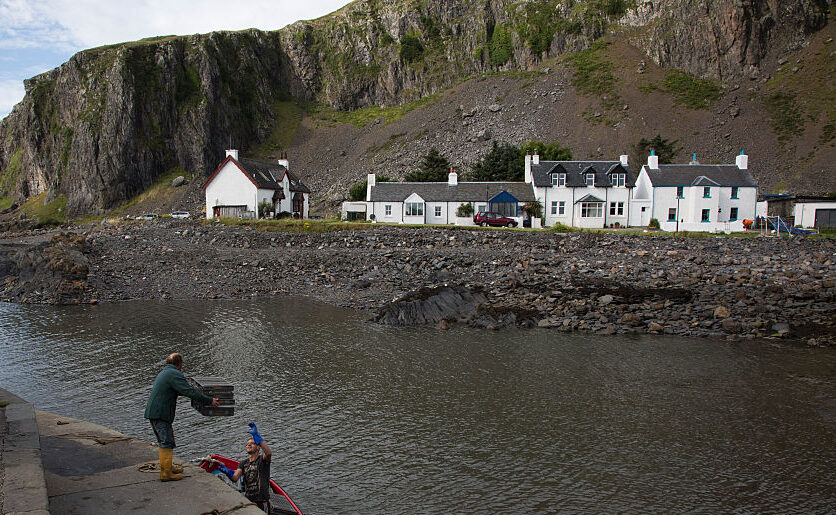World
How Britain abandoned Scotland

And yet, people are not receiving a cheque on their doormat each year signed “from London, spend wisely”. Instead, all they actually experience in their lives is a dependence which, at best, cushions their seemingly relentless decline. “Our hospital used to work, but now it’s atrocious” one member of the audience in Benbecula told the panel of aspiring MPs on Monday. The chair of the debate that evening then set out the scale of the challenge facing the community. “Currently, you can’t have a baby on the island,” she said. “You can’t have chemotherapy on the island. You can’t have minor surgery, you can’t have a vasectomy. You can’t have any of the small minor surgery interventions that you used to be able to have.”
This is not unique to Benbecula, or even Scotland, but is playing out across the UK where services are noticeably deteriorating. My own grandmother was on the receiving end the other day, woken up at 3am by a telephone call from the hospital who had looked at her blood tests and decided she had to come in immediately, only to then make her wait for 15 hours, alone, before failing to give her the treatment she needed because the doctors changing shifts had not handed over correctly. Everyone now has stories like this.
I used to think that the difference between Right and Left in politics was that, at heart, the Right believed Britain was fundamentally too poor and so needed to prioritise economic growth, while the Left believed it wasn’t a question of wealth but of distribution, and so needed to prioritise public spending. The radicals on either side believed in major structural reforms to fix these problems, while the moderates simply concluded small technocratic changes would be enough. Today, though, there seems to be a consensus emerging that Britain is both too poor and too unequal and that small technocratic tweaks will not be enough.
Today, we pay more tax for less in public services, with record levels of immigration for record low growth, all papered over by ever more dependence on London, which only produces ever more resentment of the capital and those who live in it. Angus MacNeil is right that defending this system because we have a Barnett formula is not enough. Limerick, after all, has plenty of roundabouts that the Irish pay for themselves.
In one sense, the Union is the safest it has been since the Brexit vote in 2016. With that issue fading from memory and the other great destabilising force, the Tories (also known as the Conservative and Unionist Party), also seemingly on their way out, the structural threats are receding. The real point, though, is that countries can thrive with independence, devolved self-rule or within larger well-governed countries. But unless they think of themselves at some level as a place containing “one people, united in interest as in dominion”, as the News Letter once put it, they will always be vulnerable. Barnet is not enough. Scottish nationalism was born in the era that oil was discovered. Suddenly, it was Scotland’s oil not Britain’s. In the end, of course, it would be Shell’s, which rather sums up the problem.
Visit Benbecula today for a similar fable of modern Britain, where even the English I met on the island are now for independence. Here is a place on the edge of Europe where the British state was once present, building things and employing people. The island’s biggest village is called Balivanich, formerly home to a few rows of cheaply built military accommodation to serve the nearby MOD missile testing site. What has now happened to that site? It has been sold off to a company called Qinetiq which now runs the place from Hampshire. Who today does not blush at this reality?
***
Listen to Tom’s podcast report here: Has the SNP blown it?

